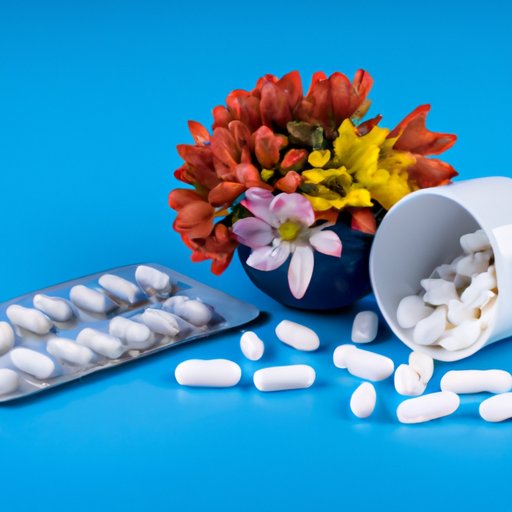
I. Introduction
If you’ve ever had a UTI (urinary tract infection), you know just how uncomfortable it can be. UTIs are caused by bacteria in the urinary tract and can lead to painful urination, frequent urination, and other unpleasant symptoms. Luckily, there are many ways to relieve UTI pain at home. In this article, we’ll explore some of the most effective home remedies, over-the-counter solutions, prescription medicines, and lifestyle changes that can make UTI pain more bearable.
II. Home Remedies for UTI Pain Relief
One of the simplest and most effective ways to relieve UTI pain is to use warm compresses. Warmth helps to ease inflammation and can reduce discomfort. Another effective home remedy is drinking cranberry juice. Cranberries contain compounds that may prevent bacteria from sticking to the bladder, reducing the risk of infection. Drinking plenty of water and staying hydrated is also essential in helping the body flush out bacteria.
Other simple techniques that can help relieve UTI pain include taking a warm bath, using a heating pad, and avoiding caffeine and alcohol. Certain foods like blueberries, garlic, and vitamin C can also help boost the immune system and prevent the spread of bacteria.
III. Over-the-Counter Solutions for UTI Pain
Over-the-counter painkillers like ibuprofen or aspirin can help reduce UTI pain quickly. However, it’s important to use only the recommended dosage and to never exceed the recommended amount. Acetaminophen can also be used as an alternative. There are also other over-the-counter medication options available, such as urinary analgesics, which numb the bladder and urethra.
IV. Prescription Medicines for UTI Pain
In cases where home remedies or over-the-counter solutions don’t work, prescription medicines may be necessary. Phenazopyridine or nitrofurantoin are common medications prescribed for UTI pain relief. Phenazopyridine works by numbing the urinary tract, reducing pain and discomfort. Nitrofurantoin is an antibiotic that helps to kill the bacteria causing the infection. However, it’s important to note that antibiotics should be used only as prescribed by a healthcare professional as overuse can lead to antibiotic resistance.
It’s also important to be aware of potential side effects when taking prescription medications. Common side effects of phenazopyridine include red or orange urine (which can stain clothing), and stomach upset. Nitrofurantoin can cause nausea, vomiting, and other gastrointestinal symptoms.
V. Lifestyle Changes to Prevent UTI Pain
Aside from effective remedies, prevention is always better than a cure. Simple lifestyle changes can go a long way in reducing the risk of UTI pain. Good hygiene practices are crucial, particularly wiping from front to back (for women), to prevent bacteria from spreading. It’s also important to wear comfortable, breathable clothing and to avoid irritants like harsh soaps or douches. Other practices that can reduce the risk of UTIs include urinating after sex and avoiding spermicidal products.
VI. When to Seek Medical Attention
While most UTIs can be successfully treated at home, it’s important to know when to seek medical attention. In some cases, a more serious infection may be present. Warning signs of a more severe infection include fever, bloody urine, and severe pain in the back or stomach. In cases like these, a healthcare professional should be consulted immediately. For most cases, it’s recommended to make an appointment with a healthcare provider if symptoms persist for more than two days or if there is a recurrence of symptoms with a history of UTI.
VII. Conclusion
UTI pain can be uncomfortable, but there are many ways to relieve it at home. Home remedies such as warm compresses and cranberry juice, over-the-counter solutions like painkillers or urinary analgesics, prescription medicines like phenazopyridine or nitrofurantoin, and lifestyle changes such as good hygiene practices can all help reduce UTI pain. It’s important to know when to seek medical attention, particularly if there are warning signs of a more serious infection. By trying some of the suggested remedies or consulting with a healthcare professional when necessary, UTI pain can be effectively managed and minimized.





